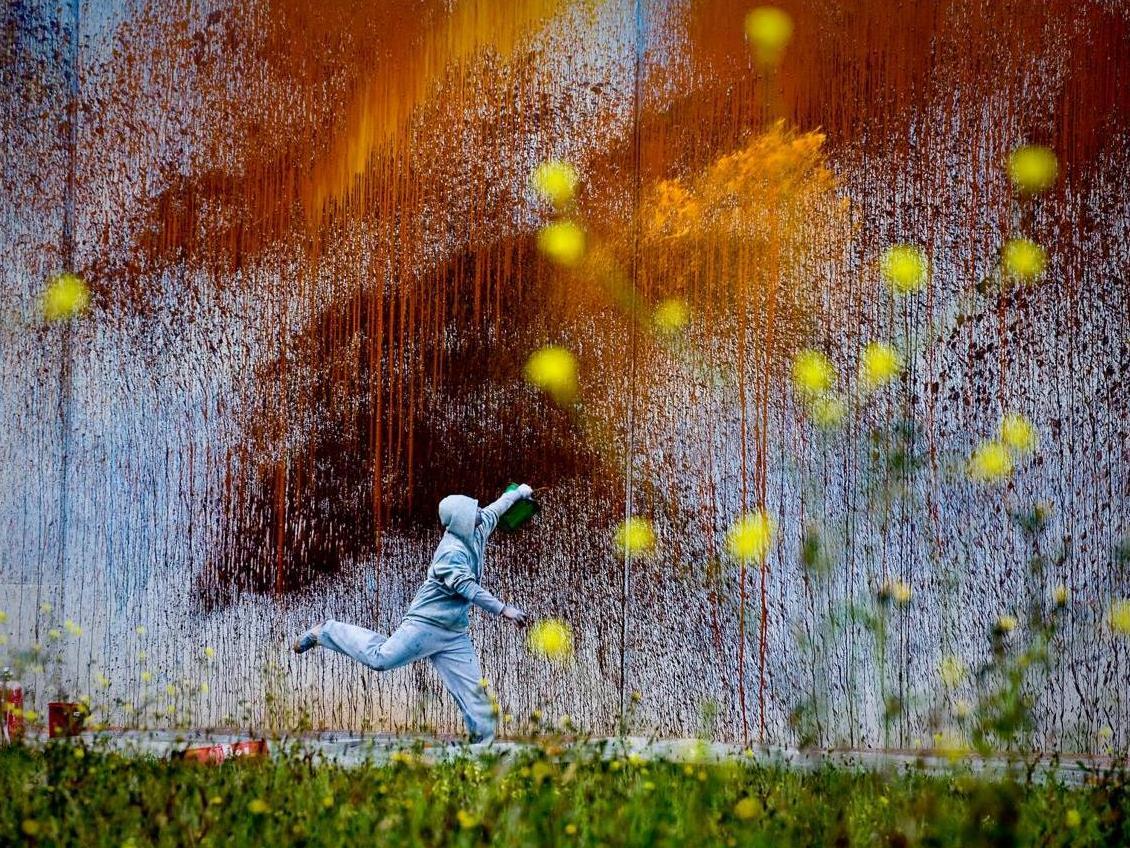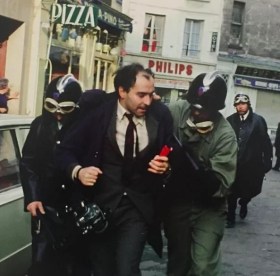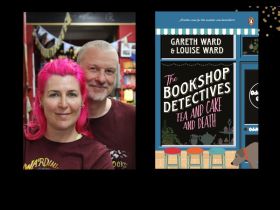Ash Keating, The west park proposition (detail) 2012, digitial video, purchased by the NGV Foundation 2012 and exhibited at Melbourne Now in 2013. © Courtesy the artist and Fehily Contemporary, Melbourne.
ArtsHub recently published an interview with Victoria’s Minister for Creative Industries, Martin Foley MP, reflecting on the first 12 months of the Creative State Policy. Here, the Shadow Minister for the Arts and Culture, Heidi Victoria, responds to the policy and to the recently released state budget for 2017-18.
* * *
No one in the arts community likes to talk about money. Most of us like to talk about politics even less.
Those of us that truly believe in the arts simply want to admire the beauty or experience the challenges of a performance, a painting, or a sculpture. We don’t want to look at a film and contemplate how much it cost to produce; we want to watch and enjoy how it makes us feel.
We certainly can’t measure the arts’ impact on Victoria in dollars alone. Whilst there’s unquestionably a financial dividend to having The Book of Mormon open in Melbourne, or holding our comedy and film festivals, or putting on the hugely successful White Night, the arguably greater impact is how they make a city feel. In how they change the vibe of a state, and how they contribute to our liveability and reputation.
We value what our arts tell us about Melbourne, and about Victoria.
This is why you should always back the team whose funding for the arts is linked to a genuine passion.
Creative state
A year on from the Andrews’ Governments ‘Creative State’ announcement and we’re seeing what happens when management of the arts isn’t linked to a real strategy, or genuine passion.
We do have to talk about the money, because much of the money for Creative State was never new or additional money; it was existing funds rebadged in a glossy brochure.
The reality is that the total funding for the arts under the Andrews Government will drop by around $5 million, according to budget figures.
At the same time, according to this month’s state budget, attendances at some venues are down. Regional touring is down. Public information is rated worse. Performance grant agreements are late. Film employment is down on last year.
Website visits are down on last year. Members and friends (often the backbone of any arts organisation) of agencies are down. Student participation in agency education programs is way down.
And there’s more – just go to the government’s own budget papers. It won’t take you long to find the relevant figures.
It’s a dreadful set of results.
The greatest failing of Creative State, however, is the lack of a genuine long term vision for the arts in Victoria. Disconnected announcements do not make a plan, regardless of how much you spend on slogans and brochures.
Chasing headlines does not work in the arts.
This is especially evident when you consider how the government has failed to properly deliver its program for music in schools, the funding for which was always illusory.
We need a vision
A proper policy for the arts is one that adds long term and systemic plans and funding around the sector. It needs to allow the sector to thrive, and also deliver the double dividend of both artistic values and financial value to the community.
The screen sector is a perfect example of the differences of approach between the two sides of politics.
The present government hints at one-off funding for individual pet projects. This can, sometimes, add a spike to the sector’s finances. However, what is needed is a policy that stimulates long-term growth in film and television production in Victoria. This provides certainty for the best writers and crew. They need to know there’ll be work around the next corner, and that the industry pipeline is strong.
It’s a cliché, but we need policies that give the sector a fishing net, not just the promise of a fish.
This growth is not achieved via summits inside Victoria with all of us talking to the same faces, but by extending the reach of government to find audiences and dollars outside of Victoria, and bringing them here.
We must reverse the parochial and insular nature of Creative State, which is focused at dropping money where it will get the best local headline. Instead, we need a policy that embraces the world, and entices the world to Victoria. This may not get as many headlines in the local papers, but it will be noticed at the doors of our theatres, museums and galleries, and in the growth of our screen sector.
The regions
A recent front page of the Geelong Advertiser calling out the Government’s broken funding promise for the Geelong Performing Arts Centre tells a story that’s been repeated across Victoria’s regions. Sadly, this is a government that feels that the Arts don’t extend beyond the tram tracks of Melbourne or marginal Labor-held seats.
And I say that is sad. Sad because those who live further from Melbourne are the ones that most need support in the arts, being geographically further from the infrastructure that has evolved over many decades in Melbourne. We all know many regional areas have beautiful galleries and theatres, but what they need are opportunities for sector growth.
Take, for example, the Coalition’s ‘Victorian City of Culture’ policy, announced in January this year. Inspired by the ‘European City of Culture’ program, where the medium term (at least one-two years post the ending of the official program in a city) impact is tangible. Job creation in the arts and tourism sectors are measurable and often substantial.
Compare that to the announcement made by the current government, several weeks later, which is specific to the Goldfields and surrounds. It sees funding going towards creation of content, not toward sector support. In other words, plenty of opportunities for pretty pictures in the newspaper, but no vision for longer term growth.
Off the back of the former Coalition Government’s funding reforms (something that hadn’t been challenged in 40 years), we have seen many success stories. We truly believed, and continue to do so, that arts practitioners shouldn’t just be given a handout, as a right. As someone who chose arts practice as a career, I understand that often what is needed is a gentle hand up.
That’s why allocating substantial funds towards Melbourne Now at the NGV a few years ago was so important, and something I’m very proud to have done. Through that platform, many emerging and mid-career artists gained exposure that has launched them on to the international market.
At the same time, the film and television sector in Australia has generally been experiencing a renaissance. Wonderful films including Paper Planes, Holding the Man, Jasper Jones and Oddball have wowed audiences, and had considerable box-office success.
Television shows including Nowhere Boys and Please Like Me are winning international viewers and awards, and it’s important that we keep producing quality content.
Our writers, actors, creatives and crew are sought after internationally, so we need to be investing in long term security right here. We need to keep them here for the viability of the sector.
The future is artistic
Victoria’s arts sector is a strong one, full of wonderful people that work in it because their passion wouldn’t see them be happy anywhere else. Governments shouldn’t splash cash gauchely for quick point scoring. We must be responsible to be enablers of carefully targeted programs to nurture the sector in the right places. This can only be achieved by a government that genuinely loves the arts.
When we have in place a real long-term vision that supports systemic growth in the sector, and is linked with strategic funding, then we can all get back to what we really enjoy: the way the arts inspire us, make us think, and bring us joy.





